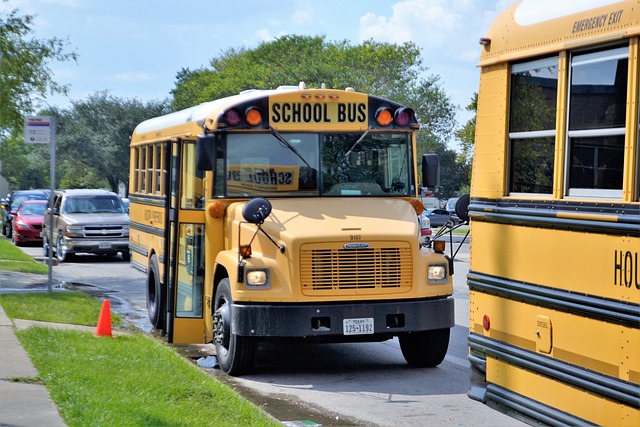Educational staff verification (background checks) is a critical process safeguarding learning environments by rigorously evaluating educators' backgrounds, including employment history, criminal records, academic credentials, and references. This helps identify potential risks to students' well-being and academic progress, ensuring qualified and committed teaching professionals foster positive growth in secure spaces. Key components of a successful verification process include criminal history checks, skills assessment, in-depth interviews, and reference checks. Robust educational staff verification enhances institutional reputations, demonstrates commitment to high standards, and safeguards learning environments while balancing fairness, privacy, and equal opportunities for all candidates.
In today’s world, ensuring safe learning environments is paramount. Educational staff verification, facilitated through robust background checks, stands as a cornerstone of this security. This article delves into the multifaceted role of these checks in preventing risks and fostering trust within educational institutions. We explore the comprehensive components of an effective process, its far-reaching benefits beyond safety, and strategies for navigating challenges while ensuring fairness in educational staff verification.
- Understanding Educational Staff Verification: The Cornerstone of Safe Learning Environments
- The Role of Background Checks in Preventing Risk and Ensuring Trust
- Comprehensive Components of a Successful Educational Staff Verification Process
- Benefits Beyond Safety: How Background Checks Enhance Educational Institutions' Reputations
- Navigating Challenges and Ensuring Fairness in Educational Staff Verification
Understanding Educational Staff Verification: The Cornerstone of Safe Learning Environments

Educational staff verification, or background checks, is an indispensable process that forms the cornerstone of ensuring safe and nurturing learning environments in institutions. It involves a thorough scrutiny of an educator’s background, including their employment history, criminal record, academic qualifications, and references. This meticulous evaluation aims to identify any potential risks or red flags that may impact the well-being and academic progress of students. By implementing robust educational staff verification protocols, schools and universities can create a secure space where teaching professionals are fit for their roles and committed to fostering positive growth in their pupils.
The significance of this process cannot be overstated, especially considering the pivotal role educators play in shaping young minds. Background checks help prevent potential dangers within educational settings by weeding out individuals with malicious intent or unfit conduct. Moreover, it empowers institutions to make informed decisions when hiring, thereby cultivating a supportive and effective learning atmosphere. Educational staff verification is not just a compliance measure; it’s a proactive step towards safeguarding students and upholding the highest standards of education.
The Role of Background Checks in Preventing Risk and Ensuring Trust

Background checks play a pivotal role in preventing risks and fostering trust within educational institutions. By verifying the backgrounds of prospective educators, schools can ensure that their faculty members are safe choices for interacting with students. These checks help uncover potential red flags, such as criminal histories or unprofessional conduct, allowing institutions to make informed decisions about hiring.
This process is an effective measure to safeguard students and maintain a secure learning environment. Educational staff verification isn’t just a bureaucratic step; it’s a crucial step in upholding the standards of integrity and safety that schools strive to provide. A thorough background check can prevent individuals with harmful intentions from gaining access to vulnerable populations, ultimately enhancing the overall educational experience for all involved.
Comprehensive Components of a Successful Educational Staff Verification Process

A successful educational staff verification process encompasses several comprehensive components designed to uphold high standards within institutions. Firstly, background checks are vital, screening applicants for any criminal history or red flags that could impact their ability to work with students. This includes verifying employment histories, checking references, and cross-referencing information against national databases to ensure accuracy.
Additionally, educational staff verification involves assessing qualifications, such as degrees, certifications, and specialized training, to confirm the candidate possesses the necessary skills and knowledge for their role. Conducting interviews and reference checks from previous employers or colleagues further enriches the process by providing insights into the applicant’s personality, teaching methods, and professional conduct. Together, these steps create a robust framework that safeguards both students and educational institutions, fostering an environment of trust and excellence.
Benefits Beyond Safety: How Background Checks Enhance Educational Institutions' Reputations

Background checks go beyond ensuring physical safety within educational institutions. By verifying the backgrounds of potential employees, schools and universities can significantly enhance their reputations as trusted and responsible organizations. A robust educational staff verification process demonstrates a commitment to maintaining high standards and fostering a positive learning environment. This proactive measure instills confidence in parents, students, and the broader community, knowing that the adults entrusted with their well-being are reliable and accountable.
Moreover, regular background checks can help identify potential risks or red flags early on, allowing institutions to take preventive measures. This proactivity ensures that any issues related to past behavior or character do not go unnoticed, thereby protecting the educational setting and its inhabitants. An institution’s reputation is a valuable asset, and implementing thorough background verification is a strategic step towards safeguarding this reputation while prioritizing the best interests of all stakeholders.
Navigating Challenges and Ensuring Fairness in Educational Staff Verification

Navigating the process of educational staff verification can present unique challenges, especially as institutions strive to maintain high standards while ensuring fairness and equal opportunities for all candidates. One significant hurdle is balancing thorough background checks with respect for privacy and individual rights. Educational institutions must carefully consider what information is essential for assessment, adhering to legal boundaries and ethical guidelines to protect the personal data of applicants.
To ensure fairness, verification processes should be transparent and consistently applied across all candidates. This involves standardized procedures that eliminate potential biases and discrimination. By implementing robust yet fair educational staff verification methods, institutions can create a level playing field, allowing them to make informed decisions while upholding their commitment to equality and diversity in the workplace.






